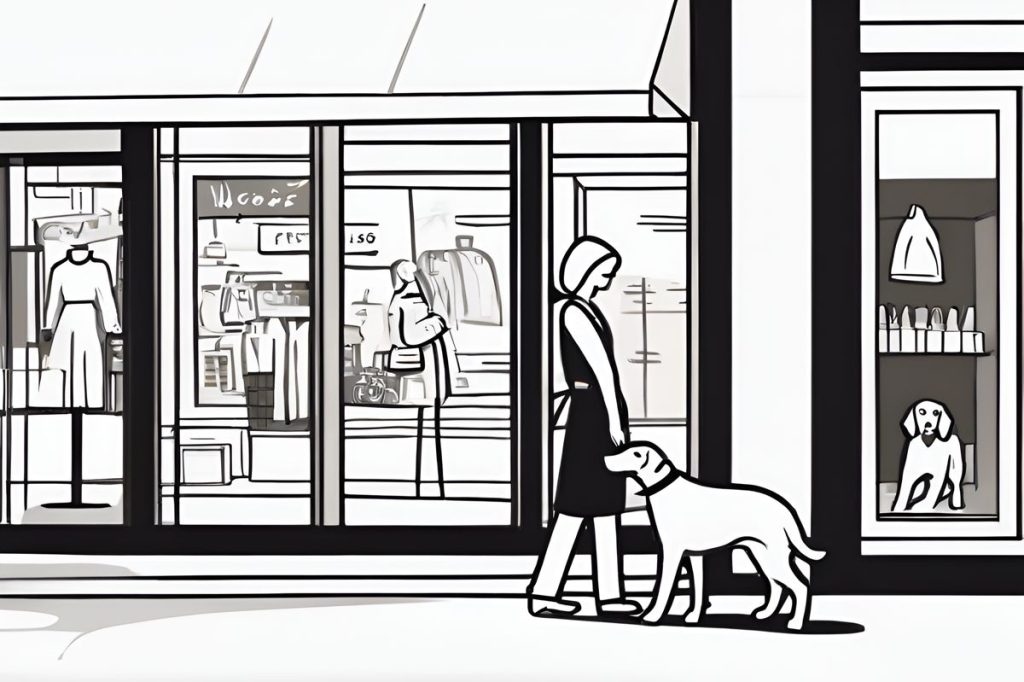In Cyprus, working dogs are vital companions for individuals with disabilities, offering them independence and security as they navigate daily life. Despite their extensive training and the legal protections in place, these assistance dogs often face discrimination in public spaces, highlighting the urgent need for greater awareness and acceptance within Cypriot society.
What is the role of working dogs in Cyprus?
Working dogs in Cyprus are specially trained to assist individuals with disabilities, providing them with independence and security. They undergo rigorous training to perform tasks like navigating environments, responding to emergencies, and aiding with mobility. Acceptance of assistance dogs in public spaces is crucial as they are vital for their handlers’ well-being and autonomy.
Vital Companions in Daily Life
Working dogs in Cyprus are more than just animals; they hold a pivotal role in the lives of many individuals. Specially trained assistance dogs are indispensable companions for people with various disabilities. In August, a young woman, living with epilepsy, hoped to enjoy a simple shopping trip in Nicosia, but this ordinary activity was made difficult without her assistance dog, which was not permitted to enter the store. Despite presenting the necessary certificates and referencing EU law, she was denied entry, putting her health and safety at risk.
Maria-Christina Patala, Cyprus’ sole certified assistance dog trainer, has witnessed firsthand the critical role these dogs play. Assistance dogs offer more than just physical support; they grant their handlers a sense of independence and security that might otherwise be impossible. Maria-Christina laments the treatment of assistance dogs on the island, noting that they are vital to their owners’ survival. The need for these dogs to be accepted in public spaces is paramount, as they enable their handlers to lead more typical lives.
Extensive Training for a Noble Purpose
The journey to become an assistance dog is rigorous, demanding between 18 months and two years of training. These dogs are chosen for their temperament and health from local shelters and undergo intensive training to assist those with both visible and invisible disabilities. Assistance dogs are adept in navigating complex environments, responding to medical emergencies, recognizing oncoming seizures, and performing essential tasks such as opening doors, retrieving items, and supporting mobility and balance.
Maria-Christina emphasizes the importance of appropriate treatment for these working animals. They should not be seen merely as pets; they require regular veterinary care, professional grooming, and sufficient rest. In turn, these dogs display extraordinary obedience, quietly accompanying their handlers in public and performing their duties without distraction.
The Challenge of Public Acceptance
Despite the significant benefits these dogs provide, there is a concerning lack of understanding and acceptance within Cypriot society. Assistance dogs often face unjust discrimination, with numerous reports of them being turned away from businesses, public transportation, and other places. This reality starkly contrasts with other European nations, where such discrimination is less common.
Maria-Christina points out that while laws exist to prevent discrimination against individuals with disabilities, enforcement can be lax. The situation in Cyprus demonstrates a need for greater awareness and adherence to legislation that supports the rights of those who depend on assistance dogs.
Building a More Inclusive Community
Recognizing the importance of assistance dogs is the first step toward fostering an inclusive environment for all citizens. Public venues like Jumbo, Leroy Merlin, SuperHome Centre, and the Smart supermarket in Tseri have become role models in Cyprus, facilitating the training of assistance dogs by creating welcoming spaces for both the animals and their handlers.
The community can contribute by respecting the role of assistance dogs and refraining from distracting them. There is also a call to action for individuals to advocate for stronger legislation and to reach out to local officials to ensure that laws are not only in place but are also enforced. By raising awareness and promoting a culture of support, the people of Cyprus can help ensure that assistance dogs and their handlers are granted the access and respect they rightfully deserve.
FAQ about Working Dogs in Cyprus
What role do working dogs play in the lives of individuals with disabilities in Cyprus?
Working dogs in Cyprus serve as essential companions for individuals with disabilities, offering them independence, security, and support in daily life. These specially trained assistance dogs assist their handlers in navigating environments, responding to emergencies, and aiding with mobility, making acceptance in public spaces vital for their well-being and autonomy.
How are assistance dogs trained in Cyprus?
The journey for an assistance dog in Cyprus involves a rigorous training process that lasts between 18 months and two years. Dogs are carefully selected for their temperament and health from local shelters. They train to perform a variety of tasks, such as navigating complex environments, recognizing medical emergencies like seizures, and providing physical support to their handlers. Proper care and treatment are paramount, as these dogs require regular veterinary attention and professional grooming.
What challenges do working dogs and their handlers face in public spaces?
Despite legal protections, assistance dogs in Cyprus often face discrimination in public settings, including businesses and public transportation. Many handlers report being denied entry to establishments even when presenting necessary documentation. This lack of understanding and acceptance highlights the urgent need for increased awareness and adherence to laws that protect the rights of individuals who rely on assistance dogs.
How can the community support the rights of assistance dogs and their handlers in Cyprus?
Community support is crucial for fostering an inclusive environment for assistance dogs and their handlers. Individuals can contribute by respecting the role of these dogs, avoiding distractions, and advocating for stronger enforcement of existing legislation. Public venues in Cyprus, such as Jumbo and Leroy Merlin, have set positive examples by creating welcoming spaces. By raising awareness and promoting a culture of support, the community can help ensure that assistance dogs and their handlers receive the access and respect they deserve.

